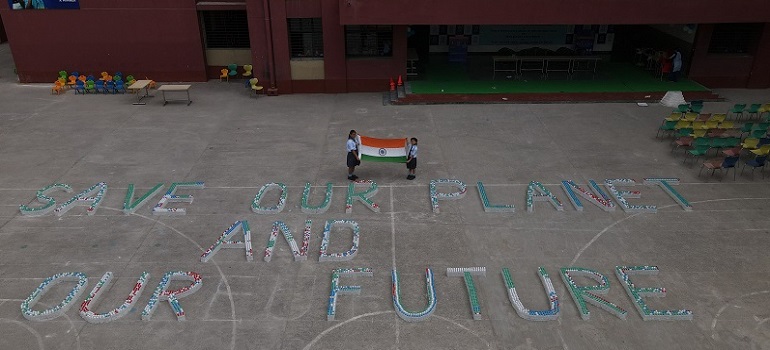Sustainable packaging is a crucial aspect of environmental conservation and avert the ‘planetary crisis.’ As the world’s population grows, so does our consumption of goods and services. This growth has resulted in an increase in the demand for packaging, leading to environmental pollution, waste, and depletion of resources. Sustainable packaging seeks to address this problem by promoting the use of eco-friendly materials and reducing the environmental impact of packaging. In this article, we will discuss why sustainable packaging is the need of the hour to stop the environmental crisit
The Need for Sustainable Packaging
The world’s population is expected to reach 9.7 billion by 2050, according to the United Nations. This growth will result in an increase in the demand for goods and services, which will lead to a rise in the demand for packaging. Traditional packaging materials such as plastic, paper, and metal have contributed significantly to environmental pollution, greenhouse gas emissions, and waste. This situation poses a significant threat to the planet’s future as the depletion of natural resources continues at an alarming rate.
Sustainable packaging offers a viable solution to this problem. It seeks to promote the use of environmentally friendly materials, reduce waste, and lower the environmental impact of packaging. The need for sustainable packaging is evident in the current environmental crisis, which has resulted from unsustainable practices such as the excessive use of non-biodegradable materials, overconsumption, and poor waste management.
The Benefits of Sustainable Packaging
1. Reduces Waste
One of the most significant benefits of sustainable packaging is that it reduces waste. Traditional packaging materials such as plastics are non-biodegradable and take hundreds of years to decompose. This leads to the accumulation of waste in landfills, which results in environmental pollution and degradation. Sustainable packaging materials such as biodegradable plastics, plant-based materials, and recyclable materials reduce waste by promoting the use of materials that can be easily recycled or decomposed.
2. Lowers Environmental Impact
Sustainable packaging reduces the environmental impact of packaging by promoting the use of materials that have a lower carbon footprint. Traditional packaging materials such as plastic and metal require a significant amount of energy to produce and transport. This results in greenhouse gas emissions and contributes to climate change. Sustainable packaging materials such as biodegradable plastics, plant-based materials, and recycled materials require less energy to produce and transport, resulting in lower carbon emissions.
3. Conserves Natural Resources
Sustainable packaging promotes the conservation of natural resources by reducing the need for virgin materials. Traditional packaging materials such as plastic and paper require the extraction of natural resources such as oil and wood. This leads to the depletion of these resources and contributes to environmental degradation. Sustainable packaging materials such as recycled materials and biodegradable plastics reduce the need for virgin materials and promote the conservation of natural resources.
4. Encourages Innovation
Sustainable packaging encourages innovation by promoting the development of new materials and technologies. The need for sustainable packaging has led to the creation of new materials such as biodegradable plastics, plant-based materials, and recycled materials. These materials have a lower environmental impact than traditional packaging materials and promote sustainable practices.
The Role of Businesses in Promoting Sustainable Packaging
Businesses have a significant role to play in promoting sustainable packaging. As the demand for goods and services increases, so does the demand for packaging. This presents an opportunity for businesses to promote sustainable packaging practices and reduce their environmental impact.
1. Adopt Sustainable Packaging Practices
Businesses can adopt sustainable packaging practices by promoting the use of eco-friendly materials such as biodegradable plastics, plant-based materials, and recycled materials. They can also reduce waste by minimizing the use of excess packaging and promoting the use of packaging that is easily recyclable or compostable.
2. Encourage Consumer Behavior Change
Businesses can also encourage consumer to switch to more sustainable packaging practices. And take goods in packaging that are environment friendly.


